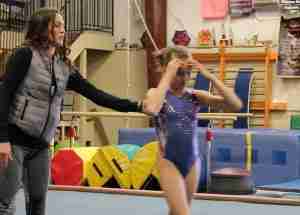If it’s not OK in a classroom or conference room, it’s not OK in a locker room.
KEY POINTS
- Gray-zone behaviors are extremely harmful in themselves and all too often lay the foundation for more blatant abuse.
- We allow demeaning (abusive) coaching because we have the mistaken impression that demeaning coaching results in winning.
- Parents overestimate the odds of their child receiving a scholarship and underestimate the psychological toll of being a student athlete.
- To determine whether coaching behaviors are abusive ask yourself: Would it be OK for a teacher to behave this way in a classroom?
Since the first report regarding Larry Nassar’s sexual abuse of his athlete-patients, new stories of egregious emotional, physical, and sexual abuse in sports across the globe are published on an almost weekly basis. In this post I will focus not on the dramatic stories that make the press but rather on the gray zone, the coaching behaviors that we don’t always recognize as abusive, but which we as a culture allow in the name of winning, that are harmful in themselves and all too often lay the foundation for more blatant abuse.
I am a physician, former competitive gymnast, mindfulness coach, author, victim/sur-thrivor of decades of covert emotional abuse, and expert on protecting children from abuse. This post is for parents, coaches, directors of coaching, athletic trainers, therapists, pediatricians, and those who care about youth athletes. The post was inspired by three questions parents who happen to be sports podcasters asked me in recent interviews about Spot a Spider, a program protecting young athletes from abuse. Below are the questions and my responses.
Why do we as individuals and society allow demeaning (abusive) coaching?
We allow demeaning (abusive) coaching because we have the mistaken impression that demeaning coaching results in winning. For example, as I report in my book A Still Quiet Place for Athletes, on October 23, 2016, the Arizona Cardinals and Seattle Seahawks game ended in a 6–6 tie. During the game, kickers Chandler Catanzaro (Cardinals) and Stephen Hauschka (Seahawks) each missed makeable field goals. During the postgame press conference, when asked about the missed field goal, Cardinals head coach Bruce Arians responded, “Make it. This is professional, this ain’t high school, baby. You get paid to make it.”
Seahawks coach Pete Carroll had a different take on his kicker’s miss, saying that Hauschka “made his kicks to give us a chance and unfortunately he didn’t make the last one. He’s been making kicks for years around here… but he’s gonna hit a lot of winners as we go down the road here. I love him and he’s our guy” (Bariso 2016)….
Carroll, who publicly espouses the benefits of practicing mindfulness, responded to Hauschka’s miss in a supportive way. Carroll’s supportive response makes it more likely Hauschka will feel relaxed, find flow, and make his field goals the next time out.
What do you say to parents who say that abusive coaching is worth it if my child gets a scholarship?
Parents vastly overestimate the odds of their child receiving a scholarship and naively underestimate the psychological toll of being a student-athlete. According to the NCAA, on average only 2% of high school athletes receive scholarship money. Even fewer receive full scholarships (aka full rides). Furthermore, the most recent NCAA data, from the fall of 2021, indicates student athletes experience high rates of mental and emotional distress: 38% of female, and 22% of male athletes felt mentally exhausted, 29% of female and 12% of male athletes felt overwhelming anxiety, 19% of female and 11% of male athletes felt sad, 10% of female and 6% of male athletes felt hopeless, and, between March and May 2022, five student-athletes died by suicide.
To reiterate, parents often allow or even encourage their children to put up with demeaning (abusive) coaching in junior high and high school because they overestimate the probability that their child will receive a college scholarship and underestimate the psychological toll of being a student athlete, much less a student athlete with a demeaning coach.
The third and most important question that I am often asked:
How can I tell the difference between demanding and demeaning coaching?
To determine whether certain coaching behaviors are demeaning or abusive ask yourself:
- Would it be OK for a teacher to behave this way in a classroom?
- Would it be OK for a boss to behave this way in a workplace?
Applying these questions to specific behaviors makes it much easier to see abuse:
Verbal emotional abuse: Would it be OK for a teacher or boss to say “Are you stupid?!” “You worthless idiot.” “You are lazy!” “You are fat!” “You are slow!” “You are the reason the class is behind/the project failed.” “You don’t belong in this classroom/ on this project!”
Would it be OK for a teacher or boss to make nasty statements based on a student’s or employee’s race, religious beliefs? Or based on who the student or employee loves? Would it be OK for a teacher or boss to text or email such comments to a student or employee? Clearly not.
Nonverbal emotional abuse: Would it be OK for a teacher or boss to make facial expressions or physical gestures to scare or intimidate students or employees? Are withering looks, rude or threatening hand gestures, getting in someone’s space in an aggressive or menacing way, throwing a clipboard, water bottle, or chair, kicking something or slamming a door appropriate or acceptable classroom or conference room behavior? Clearly not.
And obviously, overt physical and sexual abuse are completely unacceptable in any setting.
Put simply, if a behavior is not acceptable in a classroom or a conference room, it is at best demeaning and more likely actually abusive, and thus unacceptable on the field or in the locker room.
Find a truly supportive coach for your child, a coach like Pete Carroll, who demands excellence on the field, communicates skillfully, practices mindfulness (and encourages everyone involved with the team to practice mindfulness), and, most important, truly supports his athletes.
This article was published on on Psychology Today.



